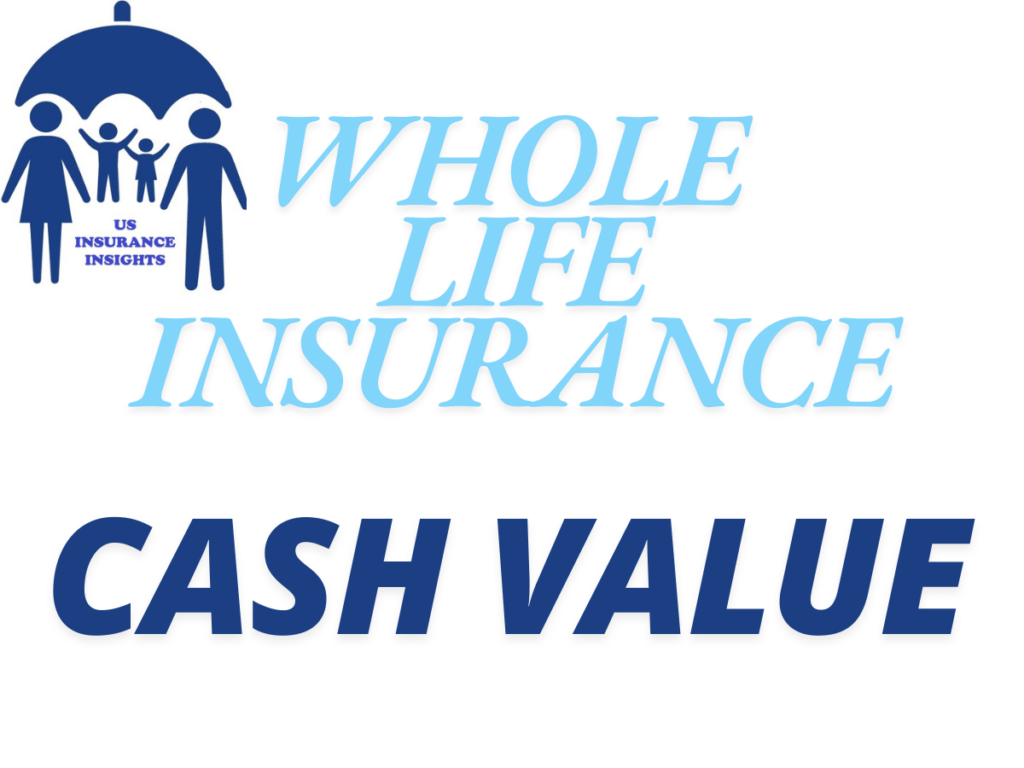Understanding Whole Life Insurance Cash Value in Plain Terms When it comes to whole life insurance, you might have heard the term cash value thrown around. In any case, what precisely does it mean, and for what reason is it significant? Let’s break it down in simple terms so you can make an informed decision about whether this type of life insurance is the right choice for you.
What is Whole Life Insurance?Understanding Whole Life Insurance Cash Value in Plain Terms
Entire life coverage is a kind of long-lasting life coverage that gives inclusion to your whole life, as long as you pay the charges. Not at all like term life coverage, which just goes on for a particular period, entire life coverage doesn’t lapse. It likewise incorporates a reserve funds part known as the money esteem, which develops over the long haul.
What is Cash Value? (Understanding Whole Life Insurance Cash Value in Plain Terms)
The cash value is one of the standout features of whole life insurance. It’s essentially a savings account within your policy. A portion of the premium you pay is set aside and grows tax-deferred. Over time, this amount accumulates and can be used in various ways.
Imagine you’re paying into a piggy bank every month. Over time, the piggy bank fills up, and you can use that money when you need it. That’s what the cash value does for your whole life insurance policy.
How Does Cash Value Work? (Understanding Whole Life Insurance Cash Value in Plain Terms)
Let’s look at a step-by-step explanation of how the cash value works:
Premium Payments: (Understanding Whole Life Insurance Cash Value in Plain Terms)
When you pay your premium, a portion goes toward the death benefit (the amount your beneficiaries will receive), and another portion is allocated to the cash value.
Collection Over the long run:
The money esteem develops after some time, generally at a proper loan cost set by the insurance agency.
Tax-Deferred Growth:
The growth of your cash value is tax-deferred, which means you don’t pay taxes on the gains as they accumulate.
Accessing the Cash Value: Once you’ve accumulated enough cash value, you can use it in several ways:
Take Out a Loan: Borrow against your policy’s cash value at a relatively low-interest rate.
Withdraw Funds: Withdraw some of the cash value, although this might reduce your death benefit.
Surrender the Policy: Cancel your policy and take the cash value, though this also ends your coverage.
Why is Cash Value Important?
The cash value offers financial flexibility. Let’s say you face unexpected medical expenses or want to fund your child’s education. You can tap into the cash value to meet these needs without taking out a traditional loan. It resembles having a monetary security net incorporated into your disaster protection strategy.
An Anecdote to Illustrate the Benefits
Imagine Sarah, a 35-year-old mother of two. She purchased a whole life insurance policy when she was 30. Five years later, Sarah’s car broke down, and she needed $5,000 for repairs. Instead of maxing out her credit cards, Sarah borrowed against her policy’s cash value. She got the money she needed without stress, and her policy remained intact. Over time, she repaid the loan, and her cash value continued to grow. That’s the power of cash value in action.
Pros and Cons of Whole Life Insurance Cash Value
Pros:
Lifetime Coverage:
Your policy stays in effect as long as premiums are paid.
Savings Component:
The cash value grows over time and can be accessed when needed.
Tax Advantages:
The cash value grows tax-deferred, and loans against it are generally tax-free.
Guaranteed Growth:
Many whole life policies offer a guaranteed minimum growth rate.
Cons:
Higher Charges:
Entire extra security is more costly than term life coverage.
Slow Growth:
It may take several years for the cash value to grow significantly.
Surrender Charges:
If you cancel your policy early, you might face fees that reduce the cash value payout.
Tips for Maximizing Your Cash Value
Start Early:
The sooner you start your policy, the more time your cash value has to grow.
Pay Extra:
If allowed, contribute more than your minimum premium to accelerate cash value growth.
Choose a Reputable Insurer:
Work with a trusted company to ensure stable growth and reliable policy management.
Understand Policy Terms:
Be aware of fees, interest rates, and how accessing the cash value impacts your death benefit.
Should You Buy Whole Life Insurance?
Whole life insurance isn’t for everyone. It’s best suited for people who:
Want lifetime coverage.
Like structure cash esteem close by their protection.
Can afford the higher premiums.
If you’re looking for coverage with added financial benefits, whole life insurance could be a great choice. However, if you’re primarily concerned about cost, you might consider term life insurance instead.
Final Thoughts
The cash value feature of whole life insurance is what sets it apart from other types of life insurance. It offers financial flexibility, tax advantages, and a safety net for unexpected expenses. While the higher premiums might seem daunting, the long-term benefits often make it a worthwhile investment.
Ready to explore your options?
Speak to a licensed insurance agent to understand how whole life insurance can fit into your financial plans. Make sure to ask about the cash value and how you can maximize its potential.
For more information on whole life insurance and its benefits, check out this comprehensive guide on life insurance.
With the right approach, whole life insurance and its cash value can provide peace of mind and financial stability for you and your family. Why wait? Start planning today!
Know more about Understanding Whole Life Insurance Cash Value in Plain Terms

